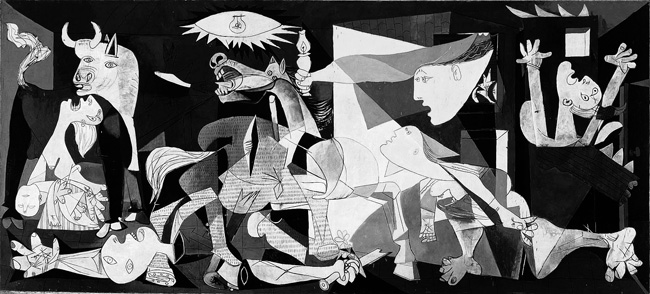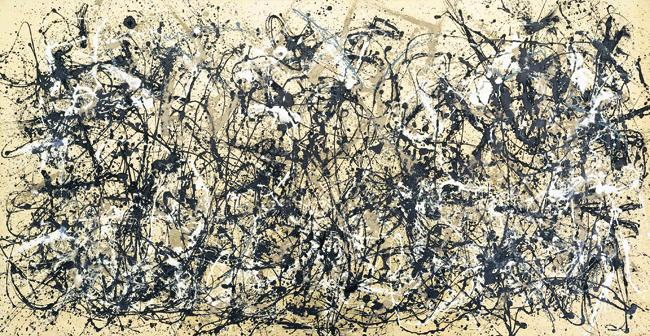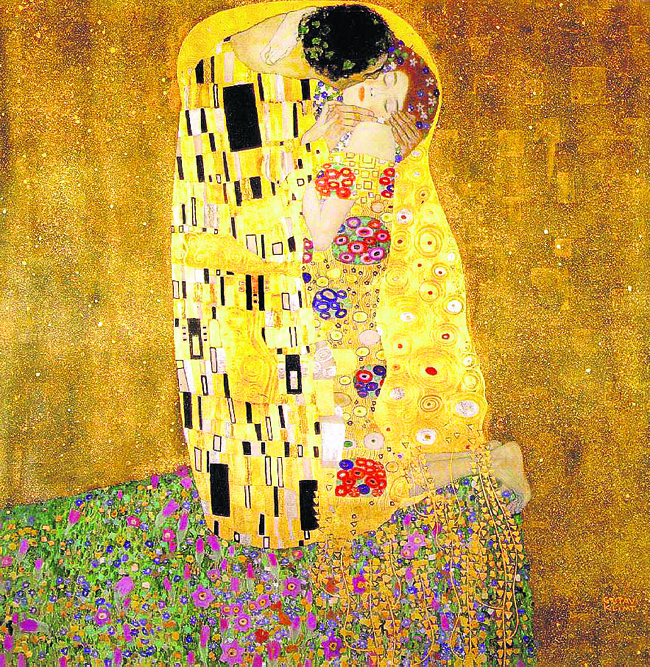The famous five
You don’t have to be an art historian to know what the Mona Lisa looks like. In fact, you don’t have to know a thing about art at all. But like the most famous literary references or movie quotes, a basic knowledge of the world’s most iconic works of art is essential to improving one’s cultural literacy. Here, every month, we will introduce you to some famous artworks.
‘Art Evolves: Nepali Modern Art’: Review

Edvard Munch’s The Scream, 1893
 Edvard Munch’s series of expressionist paintings and pastels are relatable images for all audiences. The fourth version of the image, a pastel created in 1895, was sold for more than $119 million at Sotheby’s in 2012. The works show a figure with an agonized expression against a landscape with a tumultuous orange sky. Critics have called it the “Mona Lisa” of modern times. If nothing else, you should know this painting because it has inspired artists and designers for many decades since its creation.
Edvard Munch’s series of expressionist paintings and pastels are relatable images for all audiences. The fourth version of the image, a pastel created in 1895, was sold for more than $119 million at Sotheby’s in 2012. The works show a figure with an agonized expression against a landscape with a tumultuous orange sky. Critics have called it the “Mona Lisa” of modern times. If nothing else, you should know this painting because it has inspired artists and designers for many decades since its creation.
Pablo Picasso’s Guernica, 1937
 Completed in June 1937, “Guernica” by Pablo Picasso is a powerful painting with an important anti-war message. The painting was created in response to the bombing of Guernica, a Basque Country village in northern Spain, by Nazi German and Fascist Italian warplanes at the request of the Spanish Nationalists. This mural-sized oil painting on canvas uses a palette of gray, black, and white, and is regarded by many art critics as one of the most moving and powerful anti-war paintings in history.
Completed in June 1937, “Guernica” by Pablo Picasso is a powerful painting with an important anti-war message. The painting was created in response to the bombing of Guernica, a Basque Country village in northern Spain, by Nazi German and Fascist Italian warplanes at the request of the Spanish Nationalists. This mural-sized oil painting on canvas uses a palette of gray, black, and white, and is regarded by many art critics as one of the most moving and powerful anti-war paintings in history.
Andy Warhol Campbell’s Soup Cans, 1962
 Andy Warhol’s most famous series is a collection of 32 paintings, each one of a Campbell’s Soup can, and each one is of a different flavor. Warhol unveiled the images at Los Angeles’ Fergus Gallery on July 9, 1962, in an exhibition that is often cited as the introduction of pop art to the west coast. If there’s a Warhol work to know, whether or not you care about its story, it’s this one.
Andy Warhol’s most famous series is a collection of 32 paintings, each one of a Campbell’s Soup can, and each one is of a different flavor. Warhol unveiled the images at Los Angeles’ Fergus Gallery on July 9, 1962, in an exhibition that is often cited as the introduction of pop art to the west coast. If there’s a Warhol work to know, whether or not you care about its story, it’s this one.
Jackson Pollock’s Autumn Rhythm, 1950
 Just three years after making his first “drip” painting, Jackson Pollock proved how far his methodology had come with this abstract canvas, in which he used sticks, trowels, knives, and anything else he could get his hands on to create this large-scale piece, which has no single point of focus. While Pollock pieces are normally accompanied by “How is that art” types of conversations, Autumn Rhythm and many similar pieces made around the same time created defining moments in contemporary art.
Just three years after making his first “drip” painting, Jackson Pollock proved how far his methodology had come with this abstract canvas, in which he used sticks, trowels, knives, and anything else he could get his hands on to create this large-scale piece, which has no single point of focus. While Pollock pieces are normally accompanied by “How is that art” types of conversations, Autumn Rhythm and many similar pieces made around the same time created defining moments in contemporary art.
Gustav Klimt’s The Kiss, 1908-1909
 Not to be confused with Rodin’s marble statue, Gustav Klimt’s square painting is the most recognizable work from the Austrian artist’s “Golden Period,” and it’s easy to see why it was called that. To ach ieve the piece’s distinct texture and rich colors, Klimt layered gold leaf on top of oil paint. Klimt depicts the couple locked in intimacy, while the rest of the painting dissolves into shimmering, extravagant flat pattern. Apparently, this image graces many girls’ college dorm rooms across the world, and recognizing it is an awesome way to start a conversation, or simply impress her.
Not to be confused with Rodin’s marble statue, Gustav Klimt’s square painting is the most recognizable work from the Austrian artist’s “Golden Period,” and it’s easy to see why it was called that. To ach ieve the piece’s distinct texture and rich colors, Klimt layered gold leaf on top of oil paint. Klimt depicts the couple locked in intimacy, while the rest of the painting dissolves into shimmering, extravagant flat pattern. Apparently, this image graces many girls’ college dorm rooms across the world, and recognizing it is an awesome way to start a conversation, or simply impress her.






































